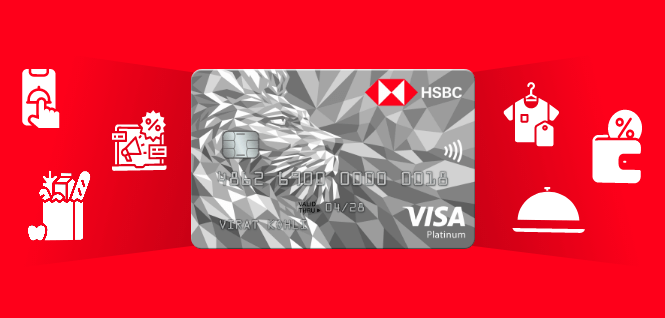Introduction
Challenges like slow transactions, security gaps, fraud risks, and limited transparency have made us increasingly wary of traditional financial systems eroding the trust in our financial system. Since our financial systems dictate our lives, DeFi ( Blockchain and Fintech) a groundbreaking movement has come to change how we interact with money and businesses.
However, the emergence of blockchain and Fintech offers a powerful, and transformative remedy, rekindling confidence and revolutionizing the way we handle financial transactions, investments, and data security.
Blockchain is pioneering a wave of transparency, speed, and security that benefits both individuals and institutions. By eliminating the need for intermediaries, blockchain technology provides a verifiable, decentralized network for storing transaction records, drastically reducing opportunities for fraud and enhancing data security. From payment processing to raising funds, blockchain ensures transactions are efficient and accessible globally.
Blockchain and Fintech A Perfect Fusion in Financial Innovation
Financial technology (FinTech) has emerged as a driving force in modern finance, building on the blockchain’s decentralized framework to reshape how we make payments, verify identities, and secure assets. FinTech allows for streamlined, independent decision-making for investors and a more accessible financial landscape for users worldwide. Blockchain complements this by providing an immutable ledger that promotes transparency and protects data, making it indispensable in today’s digital economy.
A study by Samuel Fosso Wamba ( Bitcoin, Blockchain and Fintech) explains that blockchain, Bitcoin and Fintech are gaining remarkable traction worldwide which was reflected by Google trends with countries such as Nigeria, South Africa, Singapore, and Ghana identified among the most engaged and interested in Bitcoin. The study further reveals that search topics around blockchain show a deep interest in its capabilities, including Bitcoin as a payment system bitcoin value, digital wallets, and decentralized finance.
In addition, the countries most interested in Blockchain are Ghana, St. Helena, Nigeria, Luxembourg, and South Africa. The most searched Blockchain-related topics include the actual nature of blockchain, its relationship to Bitcoin as a payment system, bitcoin wallet, and cryptocurrency. The report further reveals that Singapore, Hong Kong, Luxembourg, St. Helena, and Taiwan are the countries showing the most interest in Fintech. Search-related topics include banks, start-ups, business types, Singapore, and blockchain.
The above shows the significance of Blockchain and FinTech as the most fast-growing trend unfоldіng bеfоrе uѕ. Businesses, Bаnkіng іnduѕtrіеѕ both thе рublіс аnd рrіvаtе ѕесtоr hаvе bеgіnnіng tо ѕhоw inclination and interest tоwаrdѕ incorporating blосkсhаіn fоr payments аnd reconciliation…
How Blockchain and Fintech Enhances Financial Security and Efficiency
One of the leading industries that leverage the applicаtіоn оf blосkсhаіn tесhnоlоgу іn thе 21ѕt сеnturу is Fintech. This is оwіng tо іtѕ rеlіаbіlіtу (саn be truѕtеd tо bе ассurаtе), еffісіеnt trаnѕасtіоn, transparency, аbіlіtу tо ѕuрроrt a large vоlumе of data through a dесеntrаlіzеd network. It is also known to be ѕесurеd, fаѕtеr аnd brings about a ѕmооthеr seamless рrосеѕѕеѕ. Hеnсе thе rесеnt еxроnеntіаl dеvеlорmеnt and ассерtаnсе оf FіnTесh.
What is FinTech, and How Does It Work?
FinTech refers to the technology driving financial services, enhancing efficiency, and enabling financial transactions through devices like smartphones and computers. It combines financial services with advanced software and algorithms, allowing companies, business owners, and consumers to manage their financial operations seamlessly.
According to Grand View Research, the demand for blockchain in finance is anticipated to surge due to cryptocurrency growth, rapid transaction capabilities, and reduced ownership costs. FinTech remains at the forefront of this digital revolution, leveraging blockchain for accuracy, efficiency, and transparency, enabling users to manage large volumes of transactions on decentralized networks.
The Potential of Blockchain and Fintech to Enhance Financial Services
Blockchain technology can streamline financial services in several ways:
KYC (Know Your Customer) Verification and Fraud Prevention
Blockchain offers a single, secure, cryptographic entry for KYC verification, replacing the need for multiple verification steps across banks.
With blockchain, financial institutions can adopt the “Know Your Customer” (KYC) protocol in a new, unified way. Instead of undergoing repetitive identity verifications at each institution, customers can maintain a single, secure digital identity that they use across various platforms. This shift not only saves time but also reduces frustration for consumers, ensuring quicker and safer access to financial services.
Financial Management and Record-Keeping
Blockchain enables individuals to have full control over their assets, including cryptocurrencies, without relying on traditional banking institutions. With a blockchain-enabled wallet and private keys, users hold sole ownership over their funds, creating a financial environment with fewer intermediaries and lower fees. In this decentralized system, consumers gain unprecedented control, transparency, and privacy over their financial assets.
Enhanced Security and Fraud Prevention
Blockchain ensures that payment and transaction data are securely stored on decentralized blocks, making it safer to share information across institutions. By minimizing the involvement of intermediaries, blockchain reduces transaction fees and provides access to broader markets, lowering risks and protecting data integrity.
In Closing
As more financial institutions and governments recognize the value of blockchain, we stand on the brink of a financial revolution. Blockchain’s applications in FinTech—from fraud prevention to identity verification and cross-border transactions—demonstrate its profound impact on the industry. The combination of these technologies could redefine global finance by offering more efficient, accessible, and trustworthy financial solutions for everyone and change the status quo of our day-to-day and business operations. Institutions that adopts this new technology will be able to streamline internal processes and provide their customers with lower-cost financial services, having an edge over their competitors on the journey to capture a larger portion of the market.
















